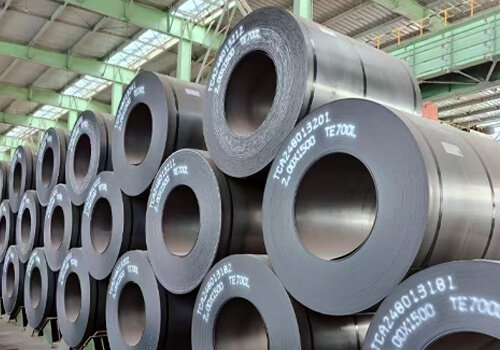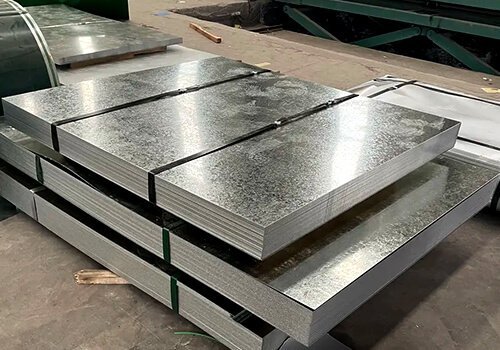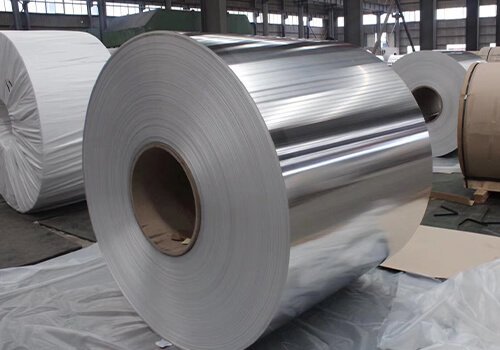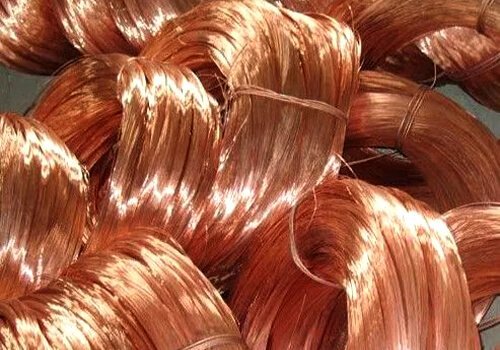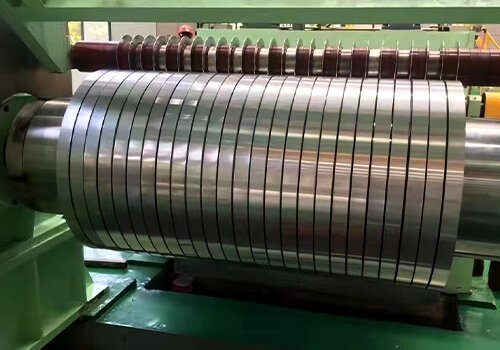Steel coils are essential to many industries, but do you understand what they are? Understanding the properties of steel coils and their various applications is critical for making informed purchasing decisions. If you work in manufacturing, construcción, or any other industry that deals with heavy materials, you cannot afford to overlook this basic material.
What is a steel coil? A steel coil is a rolled sheet of steel that is wound into a coil to make transportation and handling easier. It comes in various forms, incluyendo el frío rodado, rollado en caliente, galvanized, y acero inoxidable, each suitable for different industries like automotive, construcción, y fabricación.
Now that we know what a steel coil is, let’s explore its different types and how they are used in various industries.
What Are the Different Types of Steel Coils?
Steel coils are not standardized products. Depending on the manufacturing process and finish used, there are several different types designed for specific applications.
The main types of steel coils are hot-rolled, laminado en frío, galvanized, and stainless steel. Each type is created with distinct processes to meet the needs of different industries, whether it’s for strength, appearance, or corrosion resistance.
- Hot-rolled steel coils are made by heating steel to high temperatures and then rolling it into coils. This type is typically used in construction and heavy-duty machinery, where strength is a primary concern.
- Cold-rolled steel coils are processed at lower temperatures, making them stronger and smoother. They are often used in automotive manufacturing and appliances, where a smooth, durable surface is necessary.
- Galvanized steel coils are coated with a layer of zinc, making them highly resistant to corrosion. These are commonly used in outdoor structures and vehicles exposed to the elements.
- Bobinas de acero inoxidable offer a high level of resistance to corrosion and are used in food processing, medical equipment, and high-end architectural designs.
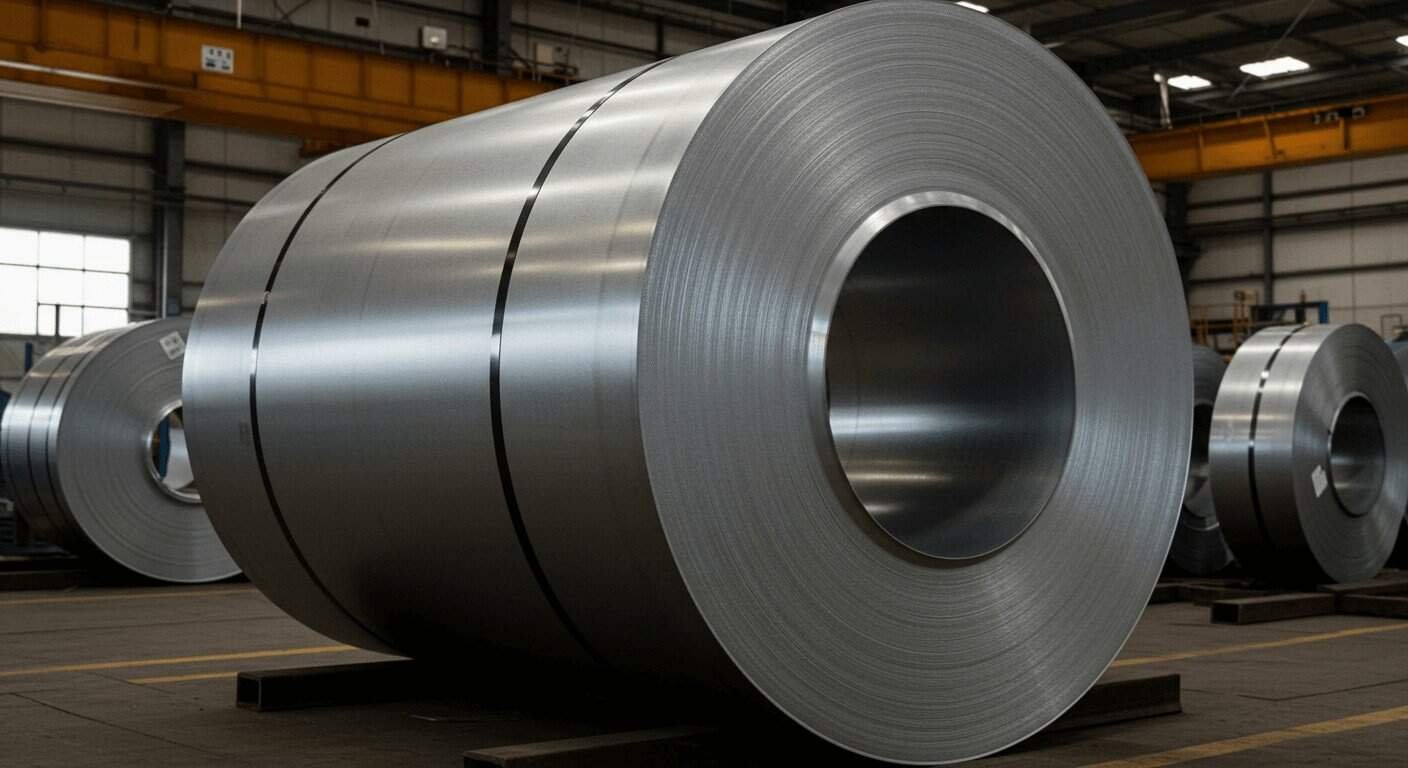
Why Are Steel Coils Used in Construction?
Steel coils have become indispensable in the construction industry due to their versatility, fortaleza, and ability to withstand extreme conditions.
Steel coils are used in construction for reinforcing bars, techumbre, and structural support. Their high strength and resistance to corrosion make them the ideal material for durable, long-lasting structures.
Steel coils are used in construction for a variety of purposes:
- barras de refuerzo (refugio): Steel coils are unrolled and processed into rebar used for reinforcing concrete, which provides buildings with increased tensile strength.
- Roofing and cladding: Galvanized and stainless steel coils are ideal for roofing materials because of their resistance to weather elements.
- Structural support: Steel coils are used to create beams and supports that form the backbone of large buildings, ensuring they remain stable over time.
How Are Steel Coils Manufactured?
Steel coil manufacturing is a multi-step process that converts raw materials into high-strength products used in a wide range of applications.
Steel coils are created by heating steel to high temperatures, rolling it to the desired thickness, and then winding it into coils. The process can vary, including hot-rolling, cold-rolling, and applying coatings such as galvanization.
The manufacturing process usually begins with raw steel being heated in a furnace. It is then passed through rollers to form a thin sheet that is coiled.
- Hot-rolling: The steel is heated to above 1,700°F (927°C), making it malleable. The steel is then rolled into large coils and cooled.
- Cold-rolling: After hot-rolling, steel coils may undergo cold-rolling, where they are passed through rollers at room temperature for added strength and a smoother finish.
- Galvanization: To prevent rust, some steel coils are coated with a layer of zinc through a process called galvanization.
What Are the Benefits of Using Steel Coils in Manufacturing?
Steel coils provide numerous advantages to manufacturers, including reduced material waste and increased production line efficiency.
Steel coils provide manufacturers with cost-effective solutions by reducing waste, simplifying material handling, and ensuring consistent quality in production. They are highly versatile and can be used in a variety of industries.
Using steel coils in manufacturing helps streamline processes:
- Cost-effectiveness: By using coils, manufacturers reduce the need for cutting, as the steel is already in the desired form.
- Efficient handling: Steel coils are easier to transport and store compared to flat sheets of steel, reducing logistics costs.
- Consistency: Coils are manufactured with precision, ensuring a consistent product that meets high-quality standards.
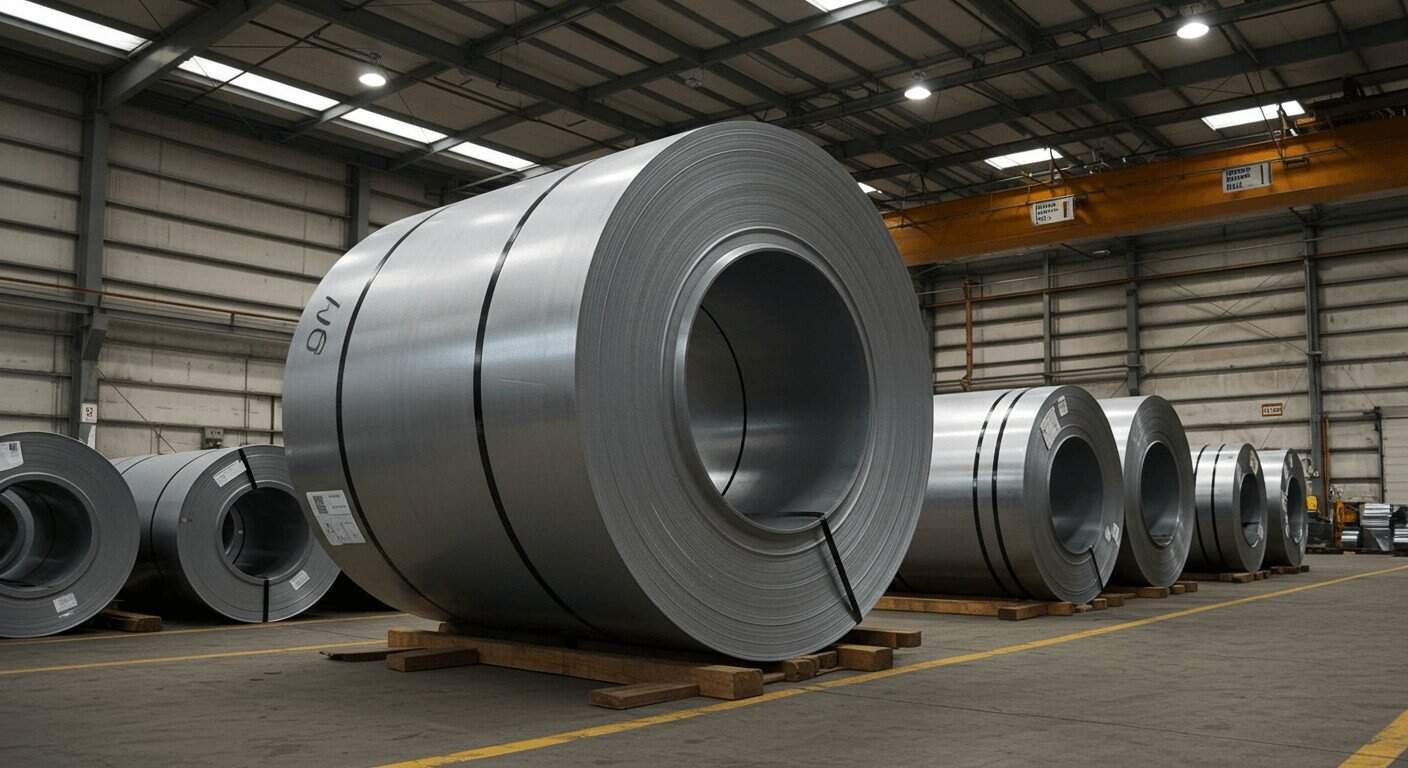
What Are the Key Quality Standards for Steel Coils?
To meet industry standards, steel coils must undergo rigorous quality control tests to ensure that they are appropriate for specific applications.
Steel coils must meet established quality standards, such as ASTM, ISO, and EN. These standards ensure that the coils have the right thickness, fortaleza, and surface quality for their intended uses.
The quality standards for steel coils vary depending on the application:
- ASTM standards: The American Society for Testing and Materials provides guidelines for the production and testing of steel coils, including their chemical composition and physical properties.
- ISO standards: The International Organization for Standardization ensures that steel coils meet global safety and quality criteria, ensuring compatibility in international markets.
- EN standards: The European standards also regulate the production of steel coils, ensuring they are safe and reliable for use in construction and manufacturing projects.
What Is a steel coil used for?
Steel coils are used in a variety of industries due to their versatility. Understanding these applications can help businesses and consumers make the best decisions.
Steel coils are used in various industries for applications like automotive production, home appliances, construcción, y embalaje. Their versatility, fortaleza, and durability make them ideal for these purposes.
Steel coils are used in:
- Automotive industry: Steel coils are transformed into car parts such as body panels, exhaust systems, and engine components.
- Appliance manufacturing: Appliances such as refrigerators, washing machines, and air conditioners all use steel coils for their structural components.
- Construcción: Steel coils are rolled into reinforcing bars and used for framing in buildings, roads, and bridges.
- Embalaje: Steel coils are used to make sturdy and durable packaging materials for products like food and electronics.
¿Pueden las bobinas de acero óxido??
Rust is a major concern when dealing with steel products, sin embargo, does it also apply to steel coils?
Sí, steel coils can rust if exposed to moisture and oxygen. Sin embargo, using galvanized or stainless steel coils can prevent rust and improve durability in harsh environments.
To prevent rust, many steel coils are treated:
- Galvanized steel coils: These coils are coated with a layer of zinc, which protects them from rust and corrosion.
- Bobinas de acero inoxidable: Stainless steel is inherently resistant to rust, making it an ideal choice for industries where corrosion is a major concern.
- Environmental factors: Exposure to water and salt can accelerate rusting, making it crucial to store and handle steel coils properly in such environments.
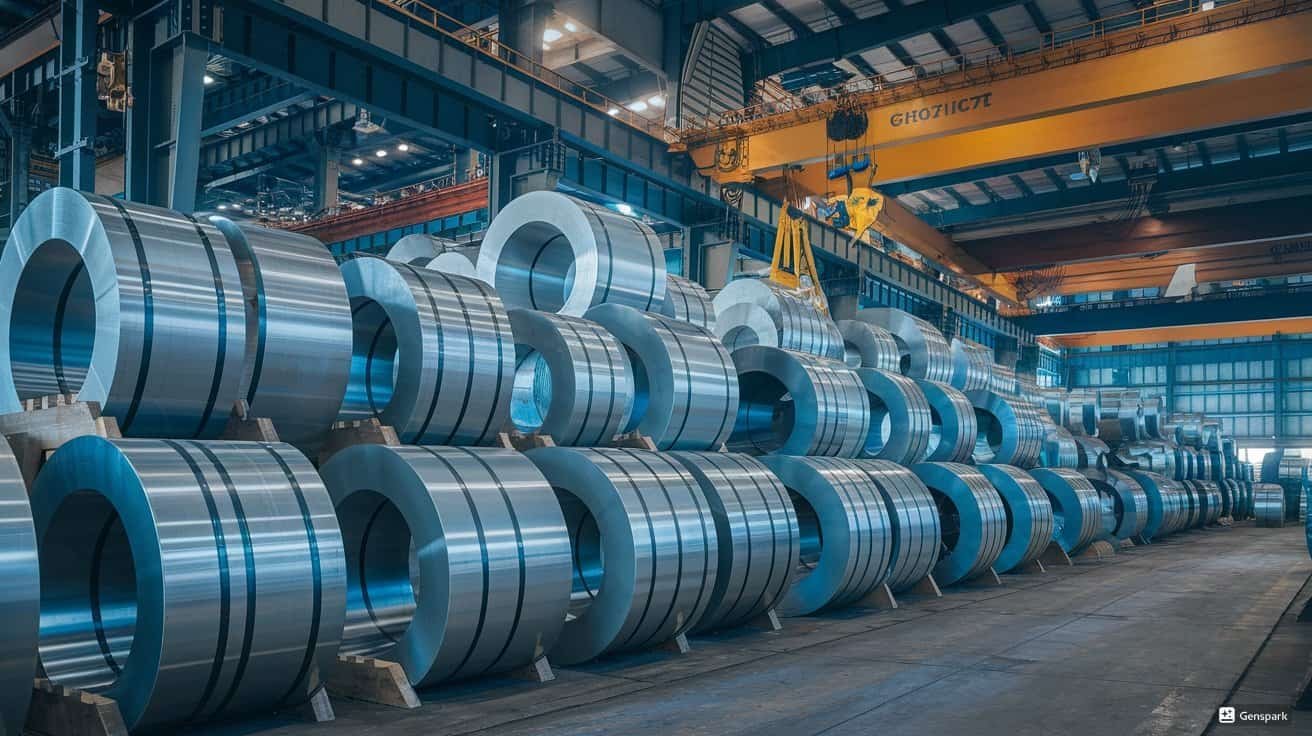
How Many Pounds Is a Steel Coil?
Steel coils come in various sizes and weights, and understanding the weight is critical for logistics and safe handling.
The weight of a steel coil can range from 2,000 a 20,000 pounds or more, depending on the size and type of steel used. Proper weight management is essential for safe transportation.
The weight of a steel coil depends on:
- Tamaño: Larger coils weigh more than smaller ones, and the thickness of the steel affects the overall weight.
- Type of steel: Some steels, like stainless steel, are denser than others, increasing the weight of the coil.
- Logistics: Heavy coils require specialized equipment for transportation and handling, including forklifts and cranes.
How Hot Are Steel Coils?
Steel coils are subjected to extremely high temperatures during the manufacturing process, but just how hot?
Steel coils can reach temperatures up to 2,300°F (1,260°C) during hot-rolling. This high temperature is necessary to shape the steel and make it malleable.
During the hot-rolling process, steel coils are heated to their working temperature. The heat ensures that the steel remains flexible enough to pass through rollers and be shaped into the desired thickness and size. This is an essential step in creating steel coils that will withstand the demands of industries like construction and automotive.
How to Handle Steel Coils?
Steel coils must be handled properly to ensure quality and prevent damage during transport and storage.
Steel coils should be handled carefully with appropriate lifting equipment, such as cranes or forklifts. They should be stored in dry areas to avoid rust and corrosion.
Handling steel coils safely involves:
- Using the right equipment: Heavy lifting gear, such as cranes and forklifts, is necessary to handle steel coils properly.
- Proper storage: Steel coils should be stored in dry, well-ventilated spaces to minimize exposure to moisture and prevent rust.
- Safety: Workers should always follow proper lifting techniques to prevent injury and ensure the coils are securely fastened during transport.
Resumen
Steel coils are essential in many industries due to their strength, durabilidad, y versatilidad. Understanding how to use and handle steel coils correctly leads to safer, more efficient operations in any project or business.

